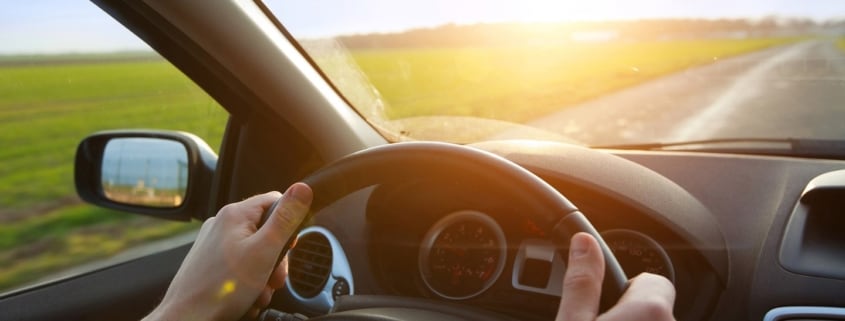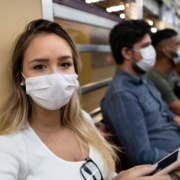The Hidden Dangers of Sun Glare Accidents
You are driving along one day – maybe you are going to work or dropping off your child at school, and everything seems fine. Suddenly, a blast of bright sunlight penetrates your windshield. You lower your visor to try to block it out, but the glare from the sun is blinding. And as you drive along, you tread carefully hoping and praying that you do not crash into anyone or anything because you could not see very well in front of you.
Sun glare can pop up when we least expect it, and it can make what starts out as an easy and routine drive far more challenging. This becomes a much bigger problem during the late fall and winter months when the days are shortened, and sunrise and sunset tends to coincide with our morning and evening drive times. If you are not careful, bright sunlight can quickly result in disastrous consequences.
How Common are Sun Glare Accidents?
It is difficult to determine the exact number of accidents that are caused each year by sun glare. The National Highway Transportation Safety Administration (NHTSA) puts the official number at around 300, but AAA and other organizations believe it is much higher. The challenge is that bright sunlight is not usually listed as a cause of accident on a police report, because drivers are very hesitant to admit to being blinded by the glare of the sun.
A 20-year study from 1995 to 2014 by the National Institutes of Health (NIH) gives us a better idea of just how dangerous sun glare can be. According to the study, bright sunlight is a contributing factor in approximately one-third of all auto accidents that occur during daylight hours. The results of this study suggest that sun glare is a far greater hazard for drivers than most people realize.
Am I At Fault for a Sun Glare Accident?
There is no doubt that bright sunlight can severely disrupt your driving, and it can make it far more difficult to notice cars that hit their brakes and slow down in front of you, pedestrians and bicyclists that cross the street in front of you, and vehicles and objects that enter your blind spot. But since this is all caused by the sun, some people wonder if they would be considered at fault if the disrupting sun glare caused an accident. After all, isn’t bright sunlight “act of God”?
Unfortunately for the driver, “act of God” is not a valid defense for causing a sun glare accident. When we talk about “acts of God”, we are talking about extraordinary natural events that could not have been foreseen and could not have been avoided. Examples may include earthquakes, mudslides, or a deer jumping in front of your car.
Although the sun shining is a natural event, it is also an everyday occurrence that is very predictable. The sun rises and sets at certain times each day, and anyone can find out when that will happen by simply watching a weather report. For this reason, it is our responsibility to exercise reasonable care to prepare for the possibility of bright sunlight, just like we would with any other predictable event.
How to Prevent Accidents Caused by Bright Sunlight
There are several things you can do to make sure you are prepared in the event that you suddenly encounter sun glare:
- Clean your windshield and make sure it is free of marks and streaks before driving;
- Be sure you have functional wiper blades and plenty of washer fluid, so you can keep your windshield clean as you drive;
- Where polarized sunglasses whenever you drive to help reduce the glare;
- Consider purchasing sun visor extenders that will help you block out more of the sun as you drive;
- When bright sunlight hits your windshield, drive slowly and allow plenty of space to deal with any problems that may lie ahead;
- If possible, modify your driving route and drive time to do less East/West driving and minimize your exposure to sun glare;
- As always, avoid unnecessary distractions such as making phone calls and texting on your cell phone while driving.
Injured in a Sun Glare Accident in Alabama? Contact Hedge Copeland for Assistance
In spite of our best efforts, we cannot control the negligent actions of others. If you or a loved one suffered injury in a sun glare accident that was caused by another driver, you deserve to be fully compensated. If the accident occurred in Alabama, call Hedge Copeland today at 251 – 432 – 8844 or message us online for a free consultation and case assessment. We will meet with you to thoroughly evaluate your case and advise you of your legal rights and options.







